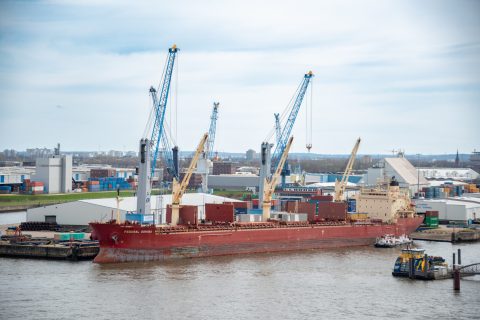
Union shocked by the agreed sale of HHLA shares to MSC
Photo: HHM / Würke
To the German United Service Union (ver.di) the agreement between the City of Hamburg and the shipping giant MSC to partially put the Hamburger Hafen und Logistik Aktiengesellschaft (HHLA) in private hands, came as a major shock.
Want to read more?
You have read all of your free premium articles for this month. Please become a subscriber to keep reading.
Subscribe now!
Take advantage of our exclusive offer to get full access to all premium content.




